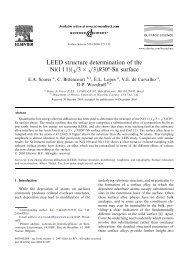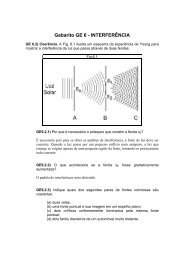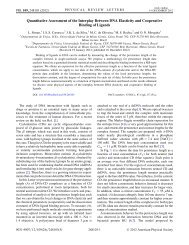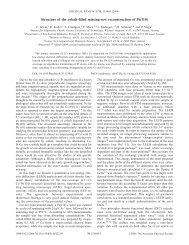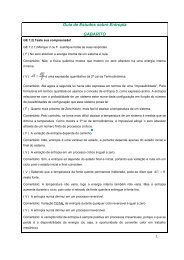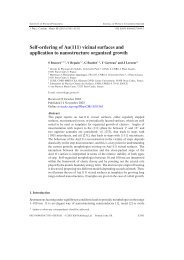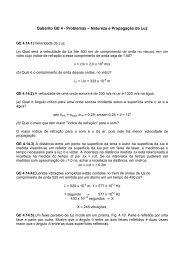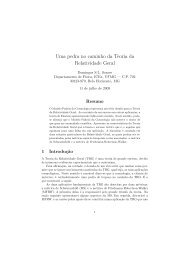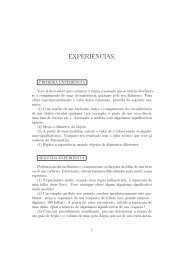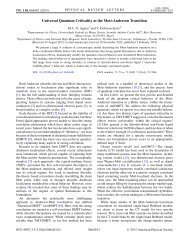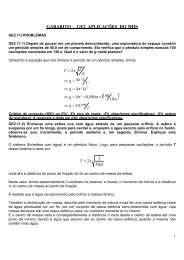Fundamental Statistical Mechanics
Fundamental Statistical Mechanics
Fundamental Statistical Mechanics
You also want an ePaper? Increase the reach of your titles
YUMPU automatically turns print PDFs into web optimized ePapers that Google loves.
10. Lyapunov exponents for a Map<br />
11. Baker's transformation is Ergodic<br />
11.1 Proof<br />
We now have all the tools needed to prove that the baker's transformation is ergodic. In fact it is<br />
possible to prove much stronger properties of the baker's transformation - it is a Bernoulli<br />
process - which implies that it is mixing. A Bernoulli process is one in which it is possible to<br />
establish some kind of isomorphism between the process and a random Markov process. This is<br />
exactly what we did when we showed that the baker's transformation can be mapped onto a<br />
Bernoulli shifts. Here we will give the proof that the transformation is ergodic since this proof is<br />
simple and very illustrative of methods often employed in more complicated cases.<br />
Consider an infinitesimal neighbourhood of a point (x, y). The vertical line through (x, y) is the<br />
stable manifold of that point, and the future images of nearby points on this line approach the<br />
future images of (x, y) as they travel together. On the horizontal line, the unstable manifold, the<br />
future images of points move away from the future images of (x, y). Under time reversal the role<br />
of the x and y directions are interchanged, the stable manifold becomes the unstable manifold<br />
and vice versa. The invariant measure on the unit square is dµ = dxdy = d x ′ d y ′ = d µ ′ .<br />
Now define forward and backward time averages as<br />
B + (Γ) = lim<br />
n→∞<br />
1<br />
n<br />
B − 1<br />
(Γ) = lim<br />
n→∞ n<br />
n−1<br />
∑<br />
j = 0<br />
n−1<br />
∑<br />
j = 0<br />
B(b j (Γ))<br />
B(b − j (Γ))<br />
Step 1 of the proof is to show that the forward and backward time averages are equal almost<br />
everywhere<br />
B + (Γ) = B − (Γ)<br />
11.2 Baker's transformation and Irreversibility<br />
<strong>Statistical</strong> <strong>Mechanics</strong> Page 44



